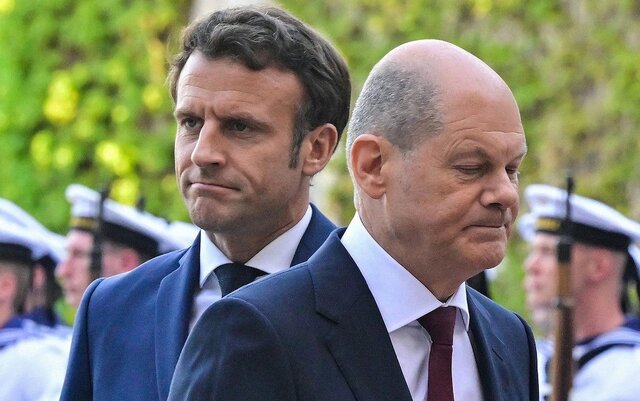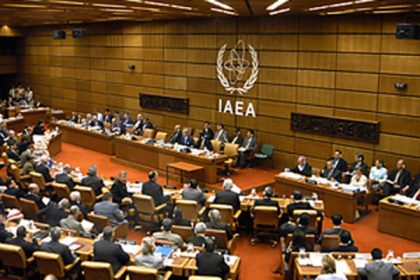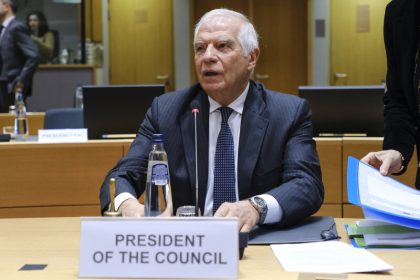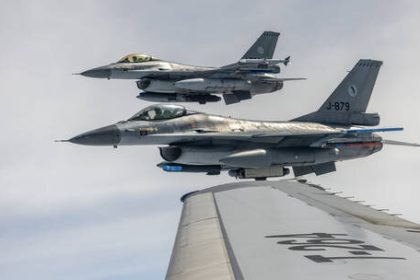Struggle of crisis-stricken Germany and France to save Europe
In the heat of Trump’s inauguration and at the very moment when European leaders are demanding unity and strong leadership from the 2 largest economies of this continent, Germany and France, these 2 countries, which are also considered the most important countries of the European Union, to answer this request. They have struggled and are involved in self-made internal problems.
According to Isna, in a situation where the Republican Donald Trump has terrified Europe with his return to the White House, the leaders of this continent are struggling with their own internal challenges.
Internal political strife and the consequences of the global response to inflation, immigration and sovereign wealth have troubled Germany and France.
In this regard, the New York Times writes: The return of “Donald Trump” to the presidency of the United States can create a challenging, isolating, sensitive and dangerous situation for Europe, which is currently immersed in economic recession and shaken by the war on its eastern borders.
This is the moment when European leaders are calling for unity and strong leadership from the two largest economies of this continent. But France and Germany, which are the most important countries of the European Union, are facing difficulties and have struggled to respond to this request.
They themselves are victims of the same political forces that helped Trump gain popularity among conservatives and swing voters in the United States. And among them, we can point out the reaction to the rapid increase in consumer prices, anxiety and anger over the increase in immigration, and the rapid loss of public trust in political properties.
Schultz – Macron
In the current situation, mainstream political parties have lost support, and instead populists and nationalists, including once-fringe far-right parties, have flourished.
Meanwhile, after months of internal conflict over taxes, spending, and the best way to reinvigorate the German economy, German Chancellor Olaf Schultz destroyed his governing coalition by firing his country’s finance minister in recent days, and it seems that the country It is headed for an early election that will likely oust Schultz from power.
A far-right party and a new populist party gained ground in recent German regional elections, and a Trump victory could boost their credibility against mainstream parties in the upcoming federal election.
In France, French President Emmanuel Macron has practically reduced his power after the disastrous decision to hold early elections this year. France took months to form a government after that vote, which nearly deadlocked France’s National Assembly and led to a shaky coalition clinging to power against the far right and left.
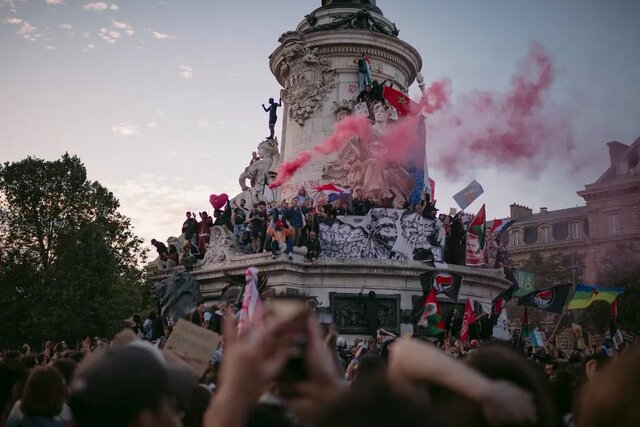
Paris protests following the July elections
The uncertainty from Paris to Berlin has created a continental power vacuum that may embolden Russia in the Ukraine war, The New York Times reports. If Trump moves quickly to impose heavy tariffs on US imports next year, it threatens Europe’s ability to respond to a global trade war.
Efforts by European leaders to develop a common policy to protect their industries from rising low-cost Chinese imports, including electric cars and other clean energy technologies, are likely to increase. And that could complicate the already difficult political task of increasing European military spending; It’s something that leaders and analysts agree takes on new urgency amid Trump’s repeated threats to withdraw from NATO or pull back on US security guarantees to European allies.
There are other more stable leaders whose role in Europe could be increased to deal with the crisis, but they also have their own complexities and predicaments.
Kerr Starmer, who was elected as Britain’s prime minister this summer, has been dogged by public outcry over gifts she and her husband accepted, and her country is no longer in the European Union.
Also, Italian Prime Minister Giorgia Meloni is a populist who can establish a close relationship with Trump, or she may find her relatively centrist approach to international affairs and support for Ukraine at odds with Trump’s own positions.
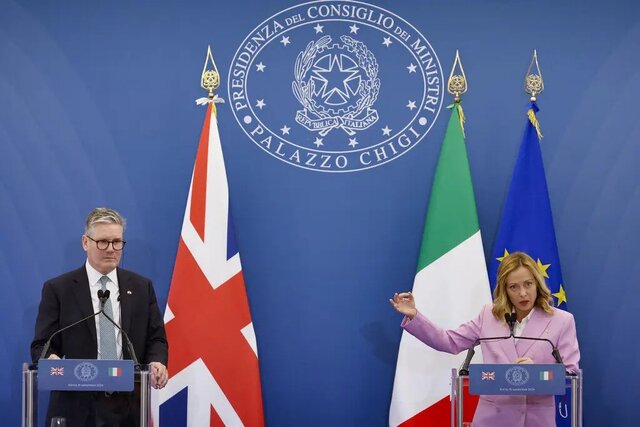
Maloney and Starmer
Analysts agree that the most natural setting to lead a more independent and powerful Europe should be from Berlin or Paris; The places that now have the most challenges and problems.
“There is a very clear crisis in the leadership of France and Germany, which is exacerbated by the collapse of the German coalition,” says Alexandra de Hope Schaefer, head of the US Marshall Fund in Paris. And France is drowned in internal political disputes of its own making. And this is a defect and an obstacle in the European and international scene.”
Meanwhile, Jorn Fleck, senior director of the Europe Center at the Atlantic Council in Washington, says France and Germany are suffering from “self-made and self-imposed” political crises, just as Trump’s election has added new uncertainties to Europe’s future. “We’re looking for a much more challenging relationship,” he said. “The situation may get worse before it gets better.”
In recent days, Macron and Schultz have acknowledged the existence of these problems, but have offered few clues as to how to deal with them.
The President of France said at the opening of the European Summit in Budapest on Thursday: “Trump was elected by the American people and he will defend the interests of the American people; This is legitimate and good. Now the question is, are we ready to defend the interests of Europeans? The world is made up of vegetarians and meat eaters, and if we decide to stay vegetarian, the meat eaters will win!”
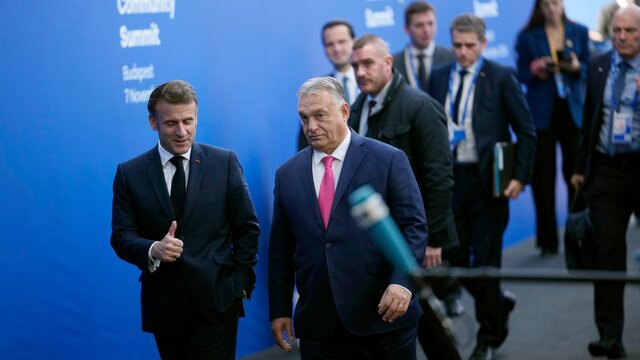
Macron in Budapest
Schultz also acknowledged the challenging moment of his decision to destroy the German coalition by firing the finance minister, who he said had begun to undermine the government’s economic plan. Instead of staying in power until next fall’s election, Schultz and his coalition are likely to face voters in March, and Schultz is likely to lose the chancellorship.
“I would have liked not to involve you in this difficult decision, especially at a time like this when uncertainty is rising,” said Olaf Schultz. But he added: “We need to stick together more than ever in Europe and continue to invest together in our security and strength, because the situation is serious.”
For years, Macron has repeatedly called for Europe to be more united and independent militarily, economically and technologically, less dependent on successive US administrations, and better equipped to compete with China’s industrial and commercial dominance. But he is now in a much weaker position than in his first term as president; He is now an official who no longer has much control over domestic politics and his term is limited and he cannot run again in 2027.
The French government is immersed in parliamentary debates over the budget; The budget is desperately needed to contain a growing deficit and debt that are among the worst in Europe. It remains unclear whether the government can secure the sharp spending cuts and higher taxes it is seeking by the end of the year without a collapse.
Also, a different and no less divisive debate is going on in Germany this week.
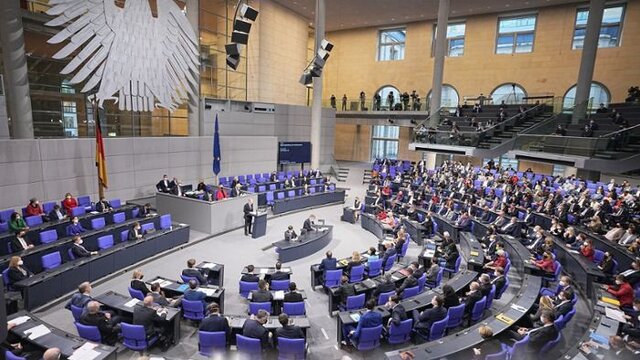
Session of the German Parliament
Leaders must agree on steps to close the budget hole and follow what is essentially a constitutional mandate for balanced budgets outside of emergencies. Disagreements on how to do this and how best to use fiscal policy to pull the German economy out of recession helped to create a multiplicity in Schulz’s coalition.
A bigger fight could be just around the corner. Trump has pressured Germany to spend more on its military, which would require Berlin to increase its military budget, which would bring its own risks. This forces leaders to take new steps to borrow money, or consider painful cuts in domestic political spending to free up more money for the military; That could infuriate voters and help “Germany First” parties like the far-right Alternative for Germany at the polls.
Schultz, however, has preferred to borrow, and has refused to pay the bills. The main choice to lead the next government, the main alternative to Schultz’s Social Democrats are the more conservative Christian Democrats. They are changing some policies, but they are still strong supporters of Ukraine. Analysts say that if they or another major party can form a government, it could end Berlin’s political paralysis; At least for a while.
end of message
News>RCO NEWS
RCO




